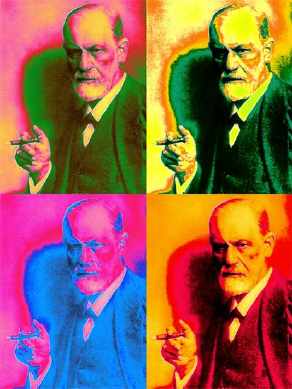 Excerpts from J.F. Masterson's The Search for the Real Self: Unmasking the Personality Disorders of our Age
Excerpts from J.F. Masterson's The Search for the Real Self: Unmasking the Personality Disorders of our AgeIt is relatively easy to spot narcissistic personalities in politics, business, and social movements. The limelight that goes with leadership is a strong magnet for narcissists, and even though success requires long hours and grueling work schedules, the payoff is worth the effort to them. Frequently, their staffs are overworked and are expected to produce perfect or near perfect results. The narcissistic leader or boss elicits martyrlike devotion from followers by manipulating their desire to be part of his achievements. With rhetoric and ritual, the narcissistic leader creates a sense of excitement and purpose and draws on his workers’ sense of mission. He is often fulsome in his praise of their devotion. In the end, however, the shrewd observer can see through the empty praise and the façade of concern for his supporters, for ultimately the narcissistic leader is only concerned about praise for his own achievements, and values others only in so far as they fulfill their role in promoting his own glory.
And . . .
One of the principal benefits of the activism of the sixties was the change in standards in all these areas – a change from authoritarianism to a greater emphasis on individuation and entitlements. These changes ostensibly created a better environment for the flowering and expression of the real self – in other words, healthy narcissism. Buy to what extent, then, does the sense of individual entitlement, now woven all the more tightly into the fabric of our society, also open the door for pathologic narcissism? Or to put it another way, does the resultant narcissism contribute to a unique and American character, or is it a pathological national flaw?









